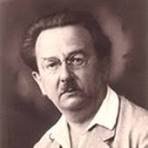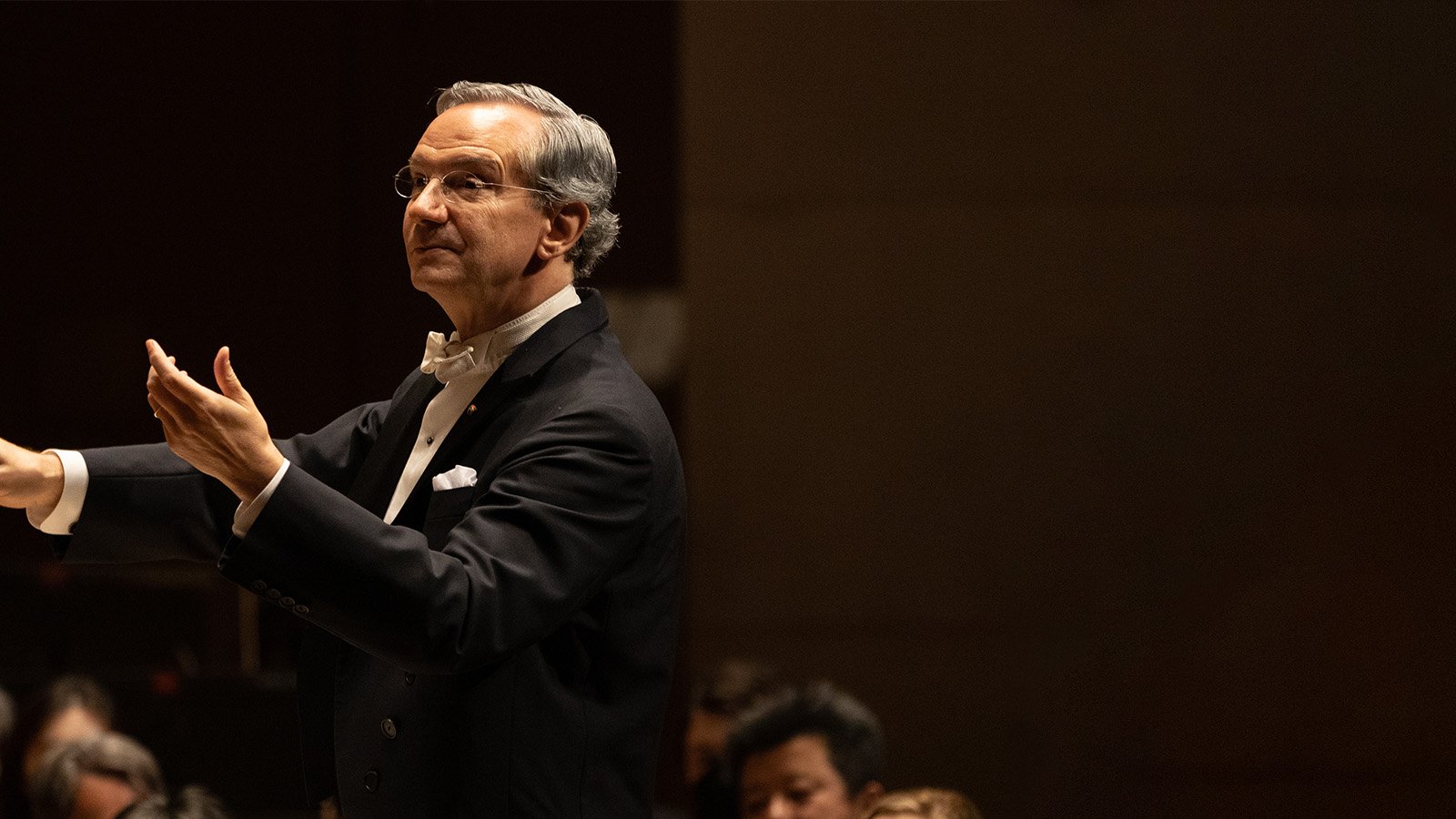Franz Schmidt’s ‘The Book with Seven Seals’ @ Dallas Symphony Orchestra
—Wayne Lee Gay
The music world has largely forgotten the composer Franz Schmidt and his massive 1938 oratorio Das Buch mit sieben Siegeln (The Book with Seven Seals).
This weekend, the Dallas Symphony Orchestra—with music director Fabio Luisi at the helm of a roster of almost three hundred singers and instrumentalists—brings that rare masterpiece to life in a performance that is nothing short of breathtaking.
Spread over two hours, the work sets to music key passages from the sometimes frightening, often dazzling poetry of the Biblical Book of Revelation. In this, his magnum opus, Schmidt produced a towering musical vision of a text that is either a wonderful metaphor, or, according to our evangelical Protestant friends, a prediction of the end times of Earth.
I'll admit that before arriving at Meyerson Symphony Center on Friday night, my own previous acquaintance with Seven Seals had been mixed. Over a period of forty-five years, I have intermittently pulled out a score or recording of the piece and been left cold, bored, and slightly perplexed. In live performance under Luisi, however, with the frightening evocation of a world destroyed by an angry, avenging god, the work becomes hypnotically powerful.
The oratorio was created by the aging Austrian composer over a period of several years, and was completed at the moment Hitler's troops marched into Austria. Its premiere occurred in Vienna shortly after the Nazi takeover, with official approval from the new regime.
Commentators continue to argue over the extent to which Schmidt cooperated with the Nazis. He seems at worst to have been passively accepting, and at best ambivalent and unaware of the implications of Naziism. From a distance of eighty years, it is definitely time to let the music of a dying, frightened man speak for him. Indeed, it is not difficult to observe that Schmidt intuitively created an anticipatory vision of the apocalyptic horrors visited on the world in the seven-year period immediately after the work's completion.
A strikingly austere Prologue, evoking the mood of late Renaissance woodcuts, introduces the evangelist John, proclaiming the prophecy revealed to him. Tenor Paul Appleby takes on this momentously demanding role with a gorgeously radiant voice that never lets down for the entire two-hour oratorio. Bass Franz-Josef Selig—placed with strategic distancing behind the viola section, rather than at the front with the other soloists—enters as the Voice of God himself with a cavernous, divine resonance. (Composers through the centuries generally avoided, with good reason, setting God as a role in oratorio or opera; Schmidt's music and Selig's voice make it work.)
Four other vocal soloists, with roles less demanding only because they are less frequently in the spotlight, are likewise impressive. Soprano Meghan Kasanders and mezzo-soprano Kelley O'Connor enliven a passage describing a mother and her starving child—the former with a crystalline soprano, the latter with a resonant, heart-rending reply. Tenor Matthew Pearce and bass Hadleigh Adams portray a pair of soldiers dying on a battlefield, watching the approach of the angel of death; a lean, spooky accompaniment proclaims Schmidt's mastery of orchestration. These images of battlefield carnage and and starving children feel depressingly relevant in today's world.
Dallas Symphony resident organist Bradley Hunter Welch handles several complex organ solos, thick with notes and dark textures, with appropriate expertise. The 160-voice Dallas Symphony Chorus, trained by Anthony Blake Clark, ranges from subtly quiet moments to roaring choral tidal waves (earning, deservedly, the loudest ovation at the close of the performance Friday night). Schmidt skillfully evokes the grand oratorio choruses of Handel and Mendelssohn, but with a late romantic breadth and sensibility.
After a colossally grand choral "Hallelujah," interspersed with lively ascending arpeggios from the orchestra, Schmidt gives us a quiet, unison, unaccompanied chant for men's chorus alone. The extended denouement continues with a recapitulation of material from the Prologue, with John the Evangalist admonishing the listener to "Harken to my words… all of which must soon come to pass”—followed by one final, fortissimo “Amen.”
At the center of it all, conductor Luisi justifies his advocacy of Schmidt's music in general and this work in particular with flawless timing and perfect command of the intricacies and emotional content of the score. Though I myself was previously guilty of questioning the channeling of resources to a work I didn't yet fully appreciate, I came away Friday night thrilled and fully convinced—and with a deepened admiration of Schmidt, of these performers, and of a brave and skilled conductor.
WHEN: March 1-3, 2024
WHERE: Morton H. Meyerson Symphony Center, Dallas
WEB: dallassymphony.org


